 Following Fiona Peterson’s account of how she plucked up the courage to attend her first Mediterranean Editors and Translators Meeting (METM17 in Brescia, Italy), today’s blog post has been kindly contributed by Valerie Matarese, an avid METMite and authors’ editor. Valerie explains what makes her come back, year after year:
Following Fiona Peterson’s account of how she plucked up the courage to attend her first Mediterranean Editors and Translators Meeting (METM17 in Brescia, Italy), today’s blog post has been kindly contributed by Valerie Matarese, an avid METMite and authors’ editor. Valerie explains what makes her come back, year after year:
METM: mettem. For 12 years now, this “word” has accompanied my springs and summers, into autumn, like a mantra, as I prepared for each MET meeting. Since the first event in 2005, I’ve attended every METM, contributing in myriad roles: as speaker, panelist, poster presenter, moderator, and session chair; as self-appointed photographer (see my personal galleries of METM05 and METM12); as reviewer and content team member; as lead organizer; and, this year, as display area manager. Clearly, METMs offer numerous opportunities for getting involved, learning new skills, and sharing existing expertise.
This year’s meeting was excellent, but this is no surprise. By now, MET has optimized its work flow for planning its annual meetings, which follow a consolidated schedule: two half-days of workshops followed by 1.5 days of conference. Yet each year, METMs grow in size, substance and extras, with this year’s event sporting numerous “off-METMs” (small-group get-togethers organized around various topics), plus early morning yoga and running, a choir performance at the closing dinner, and post-meeting outings—great opportunities for networking and bonding with colleagues. The bonds are for sharing not only a common work interest, but also a common dedication to MET and its objectives, and for this reason a core group of MET members comes back year after year.
For me, the highlight of METMs is the chance to expand my professional horizons beyond the realm of author editing in the biomedical sciences. It is only thanks to METMs that I have learned about genres, corpus analysis, text histories, and people-first language, for example. Exposure to how translators solve language problems and how teachers of academic English instill best practices has certainly helped me work better.
This year, in the spirit of learning something new, I attended the pre-conference workshop “Understanding our clients: why do anthropologists write that way?” facilitated by Susan DiGiacomo, who presented extracts of anthropological research articles. To a biologist like me, these articles, without identifiable methods or results sections, seemed like essays, making me wonder how knowledge is created in this social science. More comforting was the observation that in anthropology, as in biology, there are both well-written texts that convey clear messages and others that cause readers to trip, get lost and give up.
The main conference program offered several sessions of professional relevance to me. Darko Hren, a professor of social psychology and regular facilitator of statistical workshops at METMs, spoke on “Setting up a research project.” As he correctly noted, language professionals, in their daily work, “encounter issues worth investigating beyond anecdotal evidence” and indeed a few MET members, including myself, have conducted studies about, or tangential to, our work. This session gave an overview of the steps in planning a study, whether qualitative or quantitative, and provided several helpful hints. But it soon became clear that a talk about designing research can only skim the surface, so the session ended by floating the idea of a future workshop to help attendees develop their own research projects, from formulating a question to writing the protocol.
Apropos of research, at MET’s annual general meeting, held Saturday, the Council announced the creation of grants to cover research costs. A committee is being formed to draft the rules governing how such grants will be awarded.
Another talk of interest, by Patricia María Ferreira, introduced simplified technical English (STE), a controlled language initially developed by the aerospace industry and now adopted by other high-tech industries, to guide technical writing, editing and translation and, ultimately, to permit unambiguous reading of technical manuals. As someone who edits mostly scholarly writing—which often suffers from ambiguity—I was interested to learn how industry is working to ensure clear communication. I suspect that perusing the STE technical specifications will uncover useful tips that I could use while both editing and teaching research article writing to Italian doctoral students.
This year, MET succeeded in engaging Tim Parks as keynote speaker. Parks is a noted novelist, essayist, translator, and professor of translation. His lecture focused on the challenges of translating from Italian to English, highlighting how the baroque features of modern Italian must be tamed so that the resulting English is not laughable. Although I do not translate, I found this talk personally relevant: When I moved to Italy and began working in Verona in 1993, Parks had just published Italian Neighbors, which recounts his own experiences living near Verona as a native English speaker beginning to learn Italian.
The second keynote lecture, by Rowena Murray, was pertinent to me professionally. Murray explained how writing retreats help researchers overcome personal barriers and mental blocks to writing up their research. Her retreats consist of 2.5 days of quiet computer time, with a dozen participants working in the same room, writing intensely for one- to two-hour periods, interspersed with breaks for discussions and snacks. It seems, but it was hard to understand, that the retreats serve to create a setting conducive to writing without, however, providing specific writing methods that can be used outside of this setting. Had such methods been discussed, they might have found application in METM attendees’ own work with clients who struggle with writing.
Another METM has come and gone, and my head is abuzz with new approaches to apply in my work and new projects to discuss with colleagues. I’ve learned, shared, contributed, and widened my network, and am eagerly awaiting METM18.
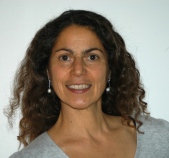 Valerie Matarese is an authors’ editor based in Italy. Born in New York, she trained in biochemistry and molecular biology at US universities and worked in research in the United States and Italy prior to launching, in 1997, a sole proprietorship offering editing, writing and training in research article writing (for doctoral students). Valerie served as editor of the multiauthor volume Supporting Research Writing: Roles and Challenges in Multilingual Settings (Chandos Elsevier, 2013), based on a panel discussion from METM09. Her latest book is Editing Research: The Author Editing Approach to Providing Effective Support to Writers of Research Papers (Information Today, 2016). More information about her professional activities can be found at www.uptoit.org.
Valerie Matarese is an authors’ editor based in Italy. Born in New York, she trained in biochemistry and molecular biology at US universities and worked in research in the United States and Italy prior to launching, in 1997, a sole proprietorship offering editing, writing and training in research article writing (for doctoral students). Valerie served as editor of the multiauthor volume Supporting Research Writing: Roles and Challenges in Multilingual Settings (Chandos Elsevier, 2013), based on a panel discussion from METM09. Her latest book is Editing Research: The Author Editing Approach to Providing Effective Support to Writers of Research Papers (Information Today, 2016). More information about her professional activities can be found at www.uptoit.org.

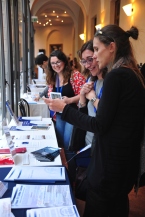
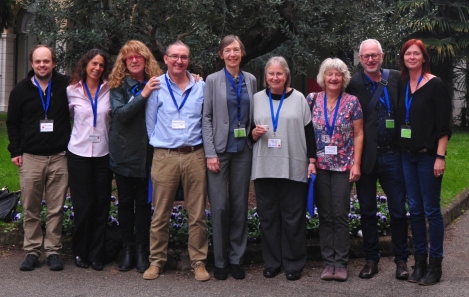
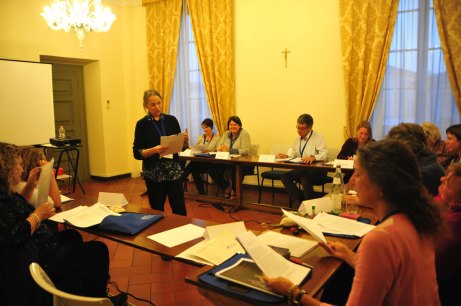
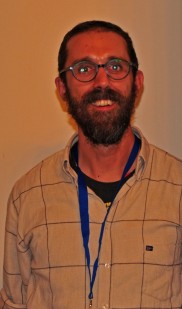
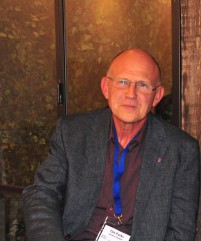


Valerie, I am happy to know that you found my presentation on Simplified Technical English interesting! It was my first METM, and it was a very positive experience. I’m already looking forward to Girona 2018!!!